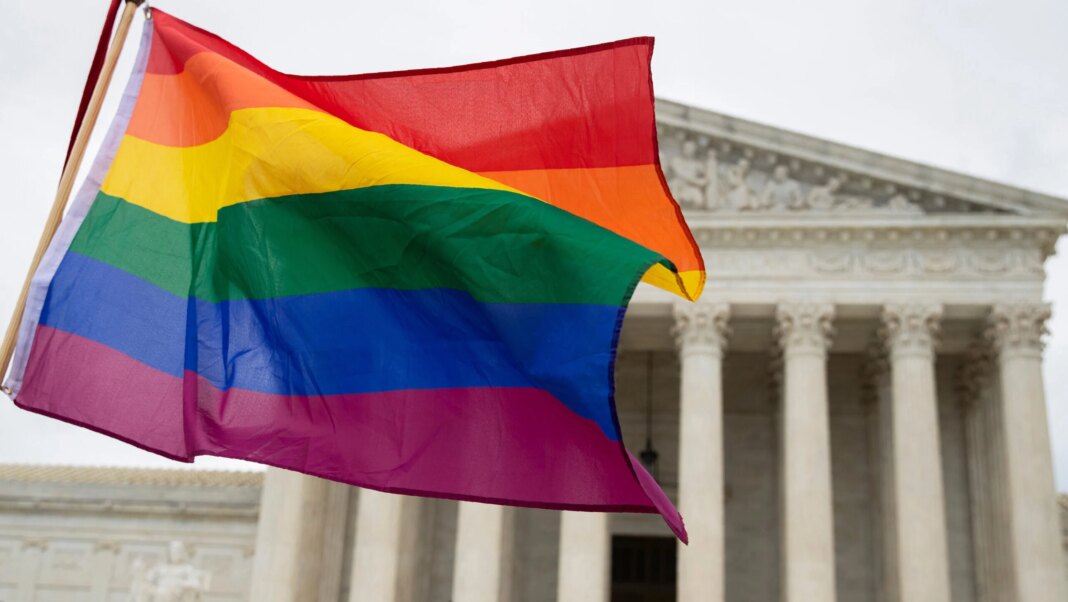Supreme Court Upholds Same-Sex Marriage: A Landmark Decision Reinforced
On Monday, the U.S. Supreme Court reaffirmed its historic ruling that legalized same-sex marriage across the nation. This decision came as the justices turned away an appeal from Kim Davis, the former Kentucky court clerk who gained national notoriety for her refusal to issue marriage licenses to same-sex couples following the court’s landmark 2015 decision in Obergefell v. Hodges.
Background: The Case of Kim Davis
Kim Davis first entered the national spotlight when she defied a federal court order to issue marriage licenses to same-sex couples after the Supreme Court’s decision. Citing her religious beliefs as a reason for her refusal, Davis’s actions sparked widespread debate about the intersection of religious liberty and legal obligations. After being held in contempt of court, she was jailed briefly in September 2015 but was released once her staff started issuing licenses, albeit without her name on them.
Legal Ramifications and Ongoing Struggles
Davis’s legal battle has not ended with the Supreme Court’s decision to deny her appeal. She was attempting to overturn a lower court ruling that mandated she pay $360,000 in damages and attorney’s fees to the same-sex couple she initially denied a license. As her legal team sought to leverage the dissenting opinions of Justice Clarence Thomas, the crux of the matter reflected ongoing tensions between personal faith and the law.
Justice Thomas stands out among the justices, having previously called for the Obergefell ruling to be overturned. His dissent in 2015 indicated a belief that states should have the authority to define marriage, placing him at odds with the majority opinion that extended marriage rights to same-sex couples.
The Current Supreme Court Landscape
Among the justices currently serving, Chief Justice John Roberts and Justice Samuel Alito were also dissenters in the original Obergefell case. While Roberts has not publicly commented much on the issue since then, Alito has voiced criticism yet stopped short of advocating for a direct overturn of the ruling.
Adding nuance to this conversation is Justice Amy Coney Barrett, who joined the court after the Obergefell decision. She has raised points suggesting that while the court may correct errors in its rulings, same-sex marriage might be viewed differently than issues like abortion—especially given the reliance people have placed on the decision in their personal lives.
The Broader Implications
This recent Supreme Court outcome not only reinforces the legality of same-sex marriage but also serves as a litmus test for broader discussions about rights, religious beliefs, and legal compliance. The public’s reaction to Kim Davis’s defiance highlighted the polarized nature of American society regarding same-sex marriage and religious freedom, themes that continue to resonate in political and legal circles today.
As Wayne County Clerk Greg Smith remarked, “The court did the right thing by affirming the legality of same-sex marriage. It’s about equal rights for everyone.” This sentiment reflects a significant portion of public opinion that has shifted dramatically in favor of LGBTQ+ rights over the past decade.
Reflections on Change and Stability
Despite the challenges faced by advocates and opponents of same-sex marriage, it’s evident that the landscape has shifted fundamentally since 2015. Public attitudes have evolved, and the assumption that same-sex marriages would remain protected by the law appears to hold strong, at least for the foreseeable future.
These discussions are not merely academic; they have real-world consequences for individuals who have already based their lives and families on the protections afforded by the Obergefell ruling. As people continue to navigate their rights in a changing legal environment, the Supreme Court’s recent actions underscore the complexities involved in interpreting constitutional freedoms and individual beliefs.
Each aspect of this ongoing dialogue concerning same-sex marriage, individual liberties, and the role of government will undoubtedly continue to engage and provoke thought across the nation.



